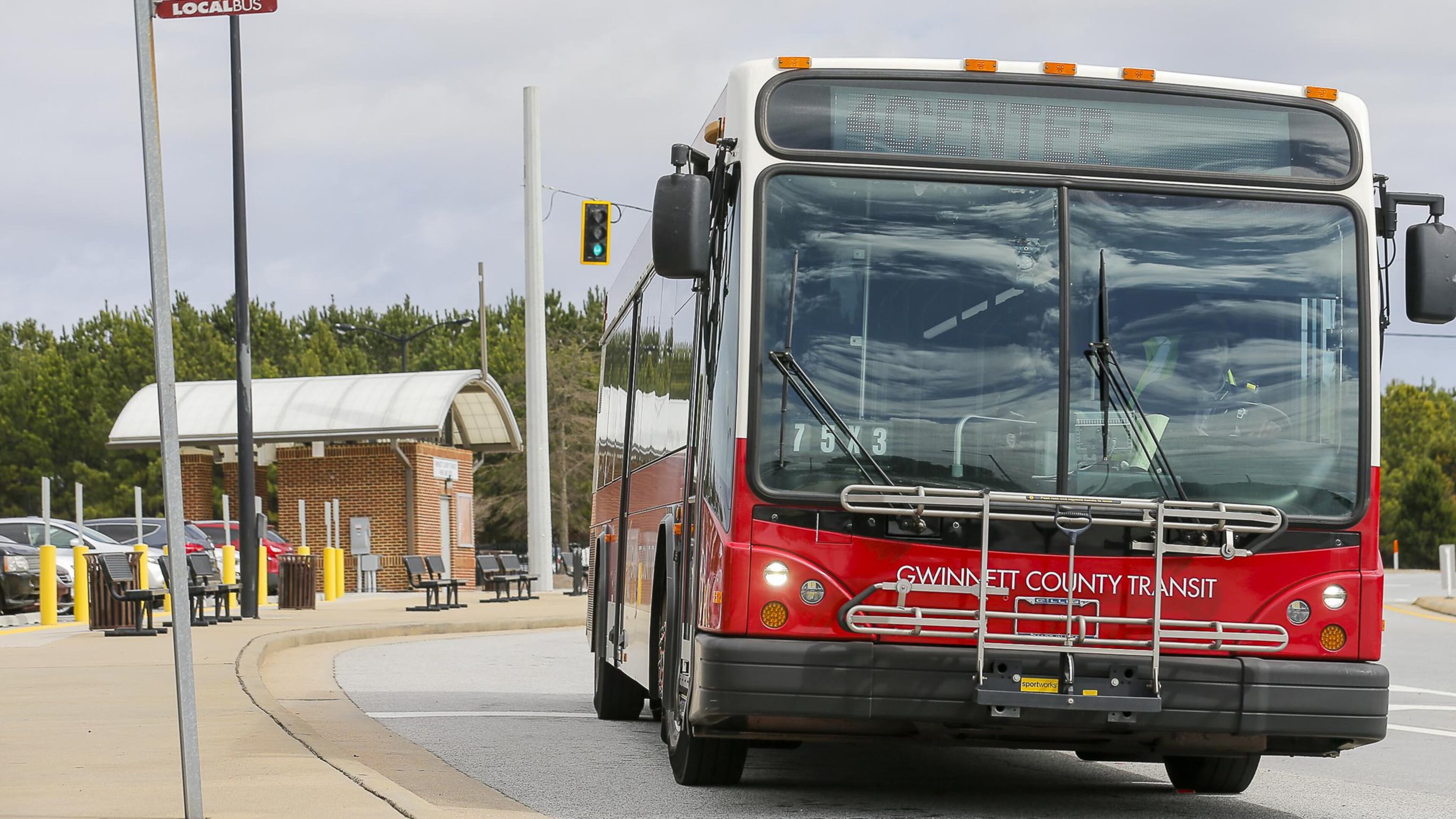Gwinnett transit panel’s work draws doubts from skeptics and advocates

The committee tasked with reviewing Gwinnett County's transit plan in the wake of March's failed referendum intends to steer clear of recommending major changes.
The panel has instead opted to explore smaller tweaks to help fill the plan’s coverage gaps.
This course of action has rankled transit critics and supporters alike.
Detractors allege the county has steered the committee toward merely providing a rubber stamp for the existing plan.
"They never wanted any other input," said Norcross resident Joe Newton, who led a small but effective opposition effort to March's ballot measure. "The whole thing was structured so they would come out with this conclusion."
Advocates, meanwhile, have concerns about what a largely similar plan could mean for the fate of a future referendum.
Art Sheldon, a longtime transit advocate and 2020 candidate for county commission chairman, likened the committee process to hanging wallpaper.
“It looks like we’re doing something,” the Democrat said, “but we’re ending up with the same flawed plan that we had originally.”
The 13-member transit review committee was assembled in October, about seven months after Gwinnett's special MARTA election failed by an 8-point margin.
Had the referendum been approved, Gwinnett would've joined the MARTA system and residents would've paid an additional 1 percent sales tax for more than 30 years. The revenue would've paid for projects included in the county's $5 billion transit plan: everything from a passenger rail extension into the Norcross area to greatly expanded local bus service.
With county leaders like Commission Chairman Charlotte Nash making no secret of their desire to call another transit referendum in the future — and possibly as early as 2020 — the review committee was tasked with taking another look at the plan and figuring out how to maximize its appeal.
The committee, whose members were appointed by county commission members and a number of community groups, was originally given until the end of December to complete its evaluation and submit a report. It’s already been granted a one-month extension.
‘Finding that right balance’
The committee has reviewed a number of potential changes to the transit plan, including scenarios that called for building longer rail lines to areas near Gwinnett Place Mall or the Infinite Energy Center, as well as one that includes no rail at all. But during a Dec. 7 meeting, the committee voted to move forward with a focus on smaller tweaks to the existing plan.
Such potential tweaks include adding bus options in areas near Lilburn, Centerville and the northern end of the county, where little service has previously been proposed.
At a presentation before the Board of Commissioners earlier this month, review committee chairwoman Laurie McClain suggested that the compressed timeline for her team’s work doesn’t offer many other realistic options.
“I’m worried that we’re taking 2.5 years worth of public input and online input and meetings and surveys, and we’re trying to take the information that professionals put together based on that input and fix it in two months,” McClain said. “I’m not really sure that we can come up with a plan that’s any better in two months than what we already have.”
Nash — the commission chairwoman and architect of the county’s transit push — said it was premature for her to comment on the committee’s work prior to receiving its final report. She did say, however, that the committee appeared to be struggling with “the classic conflict of service versus cost.”
“Finding that right balance will be critical in gaining public support,” Nash said.
The transit plan, of course, was hardly the sole reason for the failure of March’s referendum.
The simple fact of MARTA's involvement was a turn-off for many Gwinnett voters, whether due to the agency's history of financial mismanagement or the perception that the transit system creates crime (a largely incorrect notion historically fueled by racial prejudice).
Other voters didn’t like the idea of ponying up another penny with every dollar they’d spend.
While many observers say a transit measure would pass if included on ballots during a higher-turnout general elections, there are questions about the optics of calling a new vote with an all-but-identical plan.
“I do have serious concerns about the public reception of a tweaked Connect Gwinnett plan,” said District 2 Commissioner Ben Ku, a Democrat.
UPCOMING TRANSIT REVIEW COMMITTEE MEETINGS
All meetings are open to the public.
- Jan. 11: 9 a.m. in the breezeway of the Gwinnett Justice and Administration Center, located at 75 Langley Drive in Lawrenceville
- Jan. 16: 6 p.m. in Conference Room C at the Gwinnett Justice and Administration Center
- Jan. 27: 6 p.m. in Conference Room C at the Gwinnett Justice and Administration Center,


